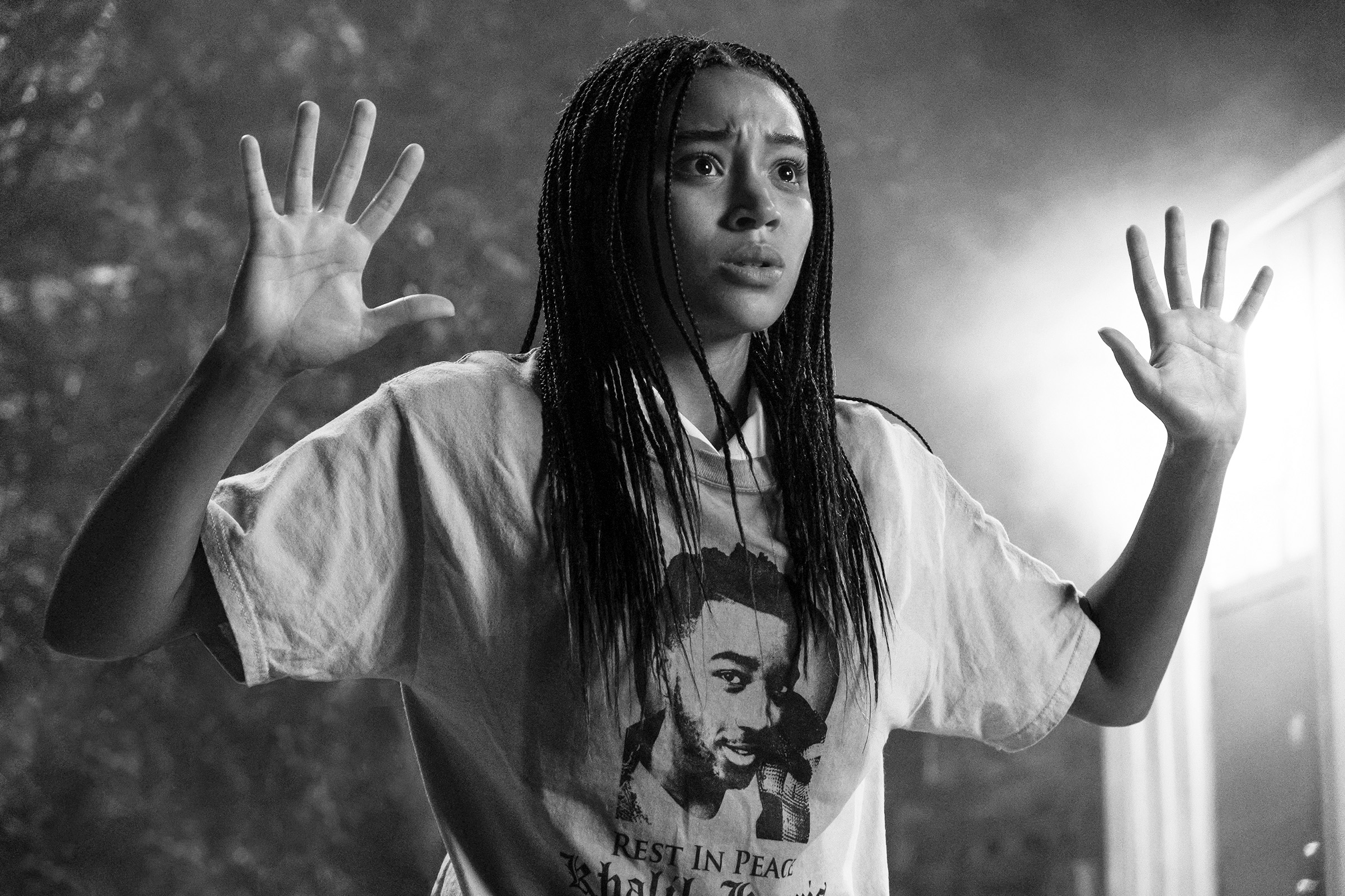A welcome break has come in the scores of white, YA (Young Adult) flicks, that have saturated Hollywood for so long. “The Hate U Give,” while still victim to some trappings of the genre, has redefined what a coming-of-age film can be. The pertinent issues of police violence and racial discrimination, for many, exist as a distant war in a foreign nation—an abstraction that we can repost on Facebook, pour out our sympathies for, and then return to the comfort of our lives. Here, these issues have been superimposed on a recognizable and beloved genre, allowing them to resonate within a much wider audience.
“The Hate U Give” tells the story of Starr Carter, a girl hailing from a poor black neighborhood who attends a rich, predominantly white prep school in the city.
The film provides a visual contrast between the two worlds, by giving her neighborhood a warm, golden lighting, while the school is cold with washed out grays and blues. The beginning of the film portrays the balance she must find between her blackness and fitting in. When she witnesses the shooting death of her childhood friend Khalil at the hands of a police officer, she must contend with the pressures of both these worlds. Starr must decide whether to be true to her slain friend, and seek justice, or cave to the threats of a neighborhood gang.
The gang piece becomes especially intriguing, as Starr’s father is an ex-member, and Khalil was peddling drugs on their behalf. If Starr pursues justice, she risks harm to her friends and family from the gang and its leader, King. While King is the central flesh and blood antagonist, the film also focuses on media stereotyping and manipulation, familial loyalty, police abuse, white complacently and subtle racism. This multifaceted dramatic approach provides the film with a sense of urgency absent in most teen movies.
The strength of this film is that it respects the intelligence of its audience, and does not force feed moral lessons. Several dialogues throughout highlight the national conversation on racial division, and the audience is left without a simple answer.
One especially memorable scene is when Starr confronts her Uncle Carlos, a cop in the same police force that killed Khalil. She asks if he would have yelled “hands up!” before firing, if he was in the same situation. It should be mentioned that Khalil was murdered when he reached for his hairbrush, and the officer believed it was a gun.
Carlos explains the anxiety that he experiences as a cop, and how he constantly looks for signifiers of violence, such as nervousness, jumpiness and sudden movements. He said he would probably just shoot. This shocks Starr and she asks what he would do if the same situation occurred in a white neighborhood. Carlos painfully states, “I would say ‘Hands up.’” Starr then storms out. The excellent writing in this scene exposes the hypocrisy of Starr’s uncle, and addresses police abuse in a nuanced manner.
“The Hate U Give” is peppered with great scenes such as Starr’s confrontation with Carlos, and if the film didn’t fall back on the occasional cliché, it would earn a near perfect score. An example of such cringe-worthy moments is when Starr goes through Khalil’s childhood toys at the end of the film, and in a voiceover, she now realizes, that Khalil means “friend.”
Luckily, such moments are exceedingly rare, and the film’s strengths overcome any weaker writing. I would highly recommend this movie to anyone interested in original, thought provoking YA cinema.
Rating: 8.7/10



